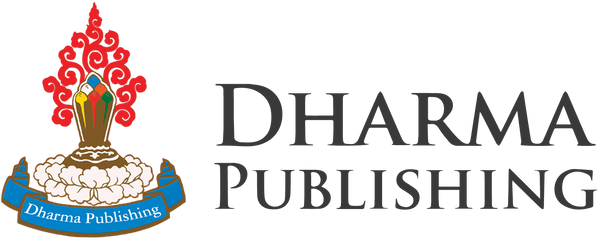Tarthang Tulku’s Knowledge of Freedom opens up a penetrating examination of the nature of knowledge, the conditioning of experience, and the fundamental operations of the mind that limit our potential as human beings. Through each chapter, we can engage in a direct, personal inquiry into the human situation that encourages the questioning of all aspects of experience. This includes evaluating the dynamics of modern life and the mental habits that determine how we think and act. Discover what mental paths bind you to your current sense of self, how this affects the approach to information, and uncover a new way to look at knowledge in daily life.
To get started, follow Ralph McFall as he questions how to take awareness of problems to a new level by evaluating our pre-established mental structures with the help of Knowledge of Freedom.
Buy Knowledge of Freedom Here
"No problem that affects us as human beings is so beyond our comprehension that we cannot look at it and question why it is happening” (Knowledge of Freedom, p. 59).
“When we see the hidden dangers in a self-oriented view, and realize how it can distort our perspective in potentially self-destructive ways, we have an opportunity to consider other possibilities” (Knowledge of Freedom, p. 74).
Evaluating Metal Structures
In our experience, we often facilitate a sense of "self" and "other". This dualistic form of receiving knowledge comes naturally to us as it is reinforced by our rational minds and the ways in which we've been taught to view the world. As such, we perceive ourselves to be an independent body that reacts to or responds to an external force. This view grounds us in separation, making us the fixed center of events.
The implication then becomes that everything you need or want is therefore set to a distance either closer or further away from where you are. However, is there a way to break this construct? Is there a way to deconstruct us from simply being the knower, the doer, and the possessor of knowledge?
No Ifs, Is, or Others...
The next time you find that you have positioned yourself at the center of a situation that requires you to need or want something, pause. Breathe. The demand to react within a given timeframe may come instinctually. Even so, try to let go of any immediate pressures that might be pushing you to react.
Now that you’ve given yourself some space for reflection, begin asking yourself some questions that will help you reevaluate your position in the scenario. Have your feelings changed now that you’ve removed the time constraints that you initially believed to be vital to the situation?
Once you’ve spent some time thinking about your role in the nature of the situation, evaluate what you have established as the “other”. Is this “other” an object? A person? A problem? What were you truly reacting to? As you come to better understand what it is that you’ve established as the “other” you can then begin a line of inquiry that deepens your understanding of the situation. Are there any qualities to the situation, problem, or perceived "other" that you can appreciate? What are these qualities?
During this process, you may discover that the gap between what you considered as “I” and the "other" begins to close with each realization of the qualities that you begin to appreciate. By closing this gap, the sense of “I” and your independent position in the scenario can begin to dissolve, providing a greater deal of space for inquiry and curiosity that is untethered to the urgent constraints that caused the initial turmoil.
For Further Study
Dharma Publishing Academy offers a fourteen session, self-paced online training course based on Tarthang Tulku’s Knowledge of Freedom. Open yourself to a new practice of questioning the mind and discover how you already have the necessary tools for unfolding your path in life.
Self-Paced
Learn More Here
Upcoming Retreat - Grounded in Freedom
Over two 3-hour webinar sessions, join Nyingma Institute faculty in challenging the patterns of mind that keep us imprisoned to preconceptions. With guided meditations, contemplations, and exercises based on Tarthang Tulku’s Knowledge of Freedom and The Joy of Being, open your awareness to the infinite potential of each moment.
May 25 - May 26, 2024: “Grounded in Freedom”
Learn More Here

Customer Reviews
The key to knowledge is to ask a question: “It is really a book about developing an inquisitive style of approaching life. It is only by asking questions that we discover new things or really come to see what it is we think we already know. I am fascinated by the whole process of questioning - if a question is asked in a neutral way, it can lead to so much discovery!” (P. Givens).
What a great book this is: “As a teacher, I feel that this book can benefit all of my students in their quest for freedom as described by Tarthang Tulku. I especially recommend this resource for persons interested in learning more about their internal mechanisms or patterns of conditioning” (Louise M. Vest).
One of the best spiritual books I've ever read: “This is one book I return to probably more often than any other. There is an incredible amount of insight and inspiration in each page. The question is, can the reader bring himself to take on the challenges the writer is asking him to consider. Tarthang Tulku is a teacher who never stops asking more from his students -- are we willing to truly change?” (A Customer).

Supporting Our Mission

